Unwilling
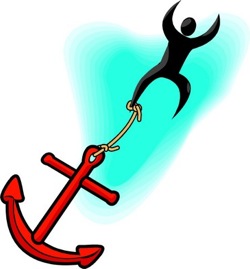 Here is a title of a book I will write – “Willingness.”
Here is a title of a book I will write – “Willingness.”
I am convinced that it is the missing ingredient in most of our endeavors or dreams.
Willingness is a mindset, nothing more. Like most mindsets, it takes cultivation.
Here’s the formula that never works – Crafting your goal and having the anchor of unwillngness digging you deeper into immobility.
Defining “unwillingness” helps make us cognizant of what’s keeping us in place. Unwillingness is a subconscious pattern, outside of our awareness, that determines what we can or cannot accomplish. Once you recognize the pattern, you are on your way to being willing.
Unwilling is filled with conditions; willing is singularly focused.
Here’s an example of an unworkable solution: I want to (fill in the blank) but these conditions have to be in place. Reminds me of a story I’ve told before . . .
I had two female co-workers as passengers in my car years ago and they were discussing their “list.” That would be the must attributes of their ideal mate. After listening to them exchange conditions for awhile, I interjected with this: “When you meet the guy of your dreams, he’ll be missing most things on your list.” They scoffed.
They both met their ideal guy, and guess what; each man had many of the unwanted conditions on their lists.
Over the years, their unwillingness softened and got out of the way of them getting what they wanted. It takes recognition for unwillingness to fade.
Here’s a phrase you can interrupt your conditioned list with: “I’m willing to (fill in the blank). The blank would be your goal minus any conditions.
Here are a few examples:
“I’m willing to be more open to abundance in my life.”
“I’m willing to attract the person of my dreams.”
“I’m willing to be well.”
Please notice the period at the end of each of those sentences. We usually add conditions after the period. Resist the temptation to do so and watch the weight of unwillingness melt and fade away.
When I write the book I’ll let you know more, but in the meantime start focusing on what you are willing to let happen without conditions.
Don’t be too surprised how one little mindset shift can trigger a world of unconditioned possibilities.
All the best,
John
Be Sociable, Share!

 There is a skill we all own but too rarely use – Sensory Acuity.
There is a skill we all own but too rarely use – Sensory Acuity.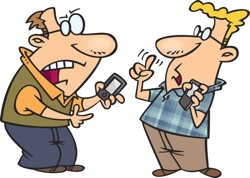 Have you had the “Nature/Nurture” argument with someone? Chances are you have.
Have you had the “Nature/Nurture” argument with someone? Chances are you have. Without getting too deep into Calculus (which is Greek on steroids to me), “Inflection” is a change point. It’s when we go from one direction into another.
Without getting too deep into Calculus (which is Greek on steroids to me), “Inflection” is a change point. It’s when we go from one direction into another. There was a big hit song in the 1970s called “
There was a big hit song in the 1970s called “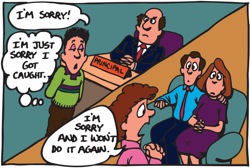 Last week The Grasshopper offered this: “Apologize for what you’re sorry for.”
Last week The Grasshopper offered this: “Apologize for what you’re sorry for.” The Grasshopper offered a profound piece of wisdom the other day: “It doesn’t matter if you’re right if you present it wrong.”
The Grasshopper offered a profound piece of wisdom the other day: “It doesn’t matter if you’re right if you present it wrong.” Here we are in the month of November which contains my favorite holiday – Thanksgiving. We are all encouraged to give thanks during this time of family gatherings, fantastic food and festivity. It got me to wondering about gratitude and how we laser focus on it during this special time.
Here we are in the month of November which contains my favorite holiday – Thanksgiving. We are all encouraged to give thanks during this time of family gatherings, fantastic food and festivity. It got me to wondering about gratitude and how we laser focus on it during this special time.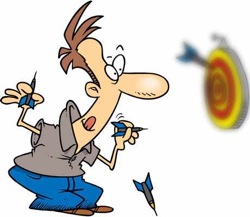 Lots of folks intend. In many circles, intending would be called praying. You would think that we would give up on a practice that has worse odds than
Lots of folks intend. In many circles, intending would be called praying. You would think that we would give up on a practice that has worse odds than 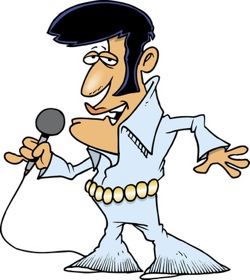 Question: Are you happy with your own company? This isn’t a business question.
Question: Are you happy with your own company? This isn’t a business question.